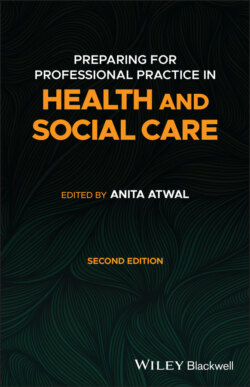Читать книгу Preparing for Professional Practice in Health and Social Care - Группа авторов - Страница 18
Reflection Is Not Only an Individual Act
ОглавлениеReflection requires knowledge, skills, and an attitude to be open to changing professional practice. For several decades there has been access to models of reflection, practical tools, and questions that prompt reflection that focuses on the individual level with inconsistency in how these tools are used. There are also growing ranges of tools available for quality improvement within health and social care that encourage an element of reflection although this is not always explicit in the structure. The Plan, Do, Study, Act (PDSA) cycle (Taylor et al. 2014) has reflection within the study phase and this is used widely in healthcare improvement (see Chapter 5). As reflection is key to all health and social care practitioners’ standards for practice, it is essential to view reflection as integrated within ‘daily’ practice rather than being perceived as an exercise only completed in pre- or post-graduate education or as an extra task only completed to pass any professional standards as a tick box exercise. It is also important to consider reflection as being beyond an activity only undertaken individually in isolation, but as core to the supervision process. Reflection is valuable when undertaken with peers, in teams, and with colleagues from a mixture of professional grades and backgrounds. The ultimate aim would be to also consider reflection inclusive of service users to truly bring together the core tenets of EBP. This will refine clinical reasoning and can add to the evidence base through informing future practice.
